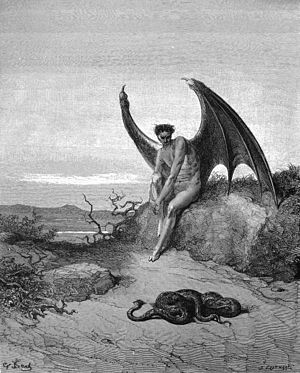What is truth to me is not truth to another. The same arguments and evidences that convince one mind make no impression on another. This difference is in men at their birth. No man is entitled positively to assert that he is right, where other men, equally intelligent and equally well-informed, hold directly the opposite opinion. Each thinks it impossible for the other to be sincere, and each, as to that, is equally in error. “What is truth?” was a profound question, the most suggestive one ever put to man. Many beliefs of former and present times seem incomprehensible. They startle us with a new glimpse into the human soul, that mysterious thing, more mysterious the more we note its workings. Here is a man superior to myself in intellect and learning; and yet he sincerely believes what seems to me too absurd to merit confutation; and I cannot conceive, and sincerely do not believe,
p. 166
that he is both sane and honest. And yet he is both. His reason is as perfect as mine, and he is as honest as I.
The fancies of a lunatic are realities, to him. Our dreams are realities while they last, and, in the Past, no more unreal than what we have acted in our waking hours. No man can say that he hath as sure possession of the truth as of a chattel. When men entertain opinions diametrically opposed to each other, and each is honest, who shall decide which hath the Truth; and how can either say with certainty that he hath it? We know not what is the truth. That we ourselves believe and feel absolutely certain that our own belief is true, is in reality not the slightest proof of the fact, seem it never so certain and incapable of doubt to us. No man is responsible for the rightness of his faith; but only for the uprightness of it.
Therefore no man hath or ever had a right to persecute another for his belief; for there cannot be two antagonistic rights; and if one can persecute another, because he himself is satisfied that the belief of that other is erroneous, the other has, for the same reason, equally as certain a right to persecute him.
The truth comes to us tinged and colored with our prejudices and our preconceptions, which are as old as ourselves, and strong with a divine force. It comes to us as the image of a rod comes to us through the water, bent and distorted. An argument sinks into and convinces the mind of one man, while from that of another it rebounds like a ball of ivory dropped on marble. It is no merit in a man to have a particular faith, excellent and sound and philosophic as it may be, when he imbibed it with his mother’s milk. It is no more a merit than his prejudices and his passions.
The sincere Moslem has as much right to persecute us, as we to persecute him; and therefore Masonry wisely requires no more than a belief in One Great All-Powerful Deity, the Father and Preserver of the Universe. Therefore it is she teaches her votaries that toleration is one of the chief duties of every good Mason, a component part of that charity without which we are mere hollow images of true Masons, mere sounding brass and tinkling cymbals.
No evil hath so afflicted the world as intolerance of religious opinion. The human beings it has slain in various ways, if once and together brought to life, would make a nation of people; left to live and increase, would have doubled the population of the civilized portion of the globe; among which civilized portion it
p. 167
chiefly is that religious wars are waged. The treasure and the human labor thus lost would have made the earth a garden, in which, but for his evil passions, man might now be as happy as in Eden.
No man truly obeys the Masonic law who merely tolerates those whose religious opinions are opposed to his own. Every man’s opinions are his own private property, and the rights of all men to maintain each his own are perfectly equal. Merely to tolerate, to bear with an opposing opinion, is to assume it to be heretical; and assert the right to persecute, if we would; and claim our toleration of it as a merit. The Mason’s creed goes further than that. No man, it holds, has any right in any way to interfere with the religious belief of another. It holds that each man is absolutely sovereign as to his own belief, and that belief is a matter absolutely foreign to all who do not entertain the same belief; and that, if there were any right of persecution at all, it would in all cases be a mutual right; because one party has the same right as the other to sit as judge in his own case; and God is she only magistrate that can rightfully decide between them. To that great Judge, Masonry refers the matter; and opening wide its portals, it invites to enter there and live in peace and harmony, the Protestant, the Catholic, the Jew. the Moslem; every man who will lead a truly virtuous and moral life, love his brethren, minister to the sick and distressed, and believe in the ONE, All-Powerful, All-Wise, everywhere-Present GOD, Architect, Creator, and Preserver of all things, by whose universal law of Harmony ever rolls on this universe, the great, vast, infinite circle of successive Death and Life:–to whose INEFFABLE NAME let all true Masons pay profoundest homage! for whose thousand blessings poured upon us, let us feel the sincerest gratitude, now, henceforth, and forever!

Moe is the founder of GnosticWarrior.com. He is a father, husband, author, martial arts black belt, and an expert in Gnosticism, the occult, and esotericism.







